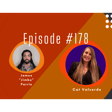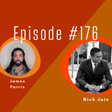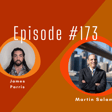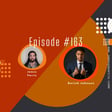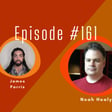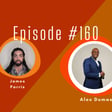
Jimbo Edition #175- Andrea Johnson
Andrea Johnson empowers executives and founders to lead with authenticity, conviction and confidence so they can make a positive impact on their lives, organizations and communities. As an adoptive parent, who grew up internationally, navigating mental and physical wellness, she learned that emotional resilience must be earned. The process of uncovering and understanding the significance of her Core Values became the key to the process that allows her clients to do the same. Andrea works with leaders who feel stifled, and have grown unsatisfied with their current level of influence. She facilitates improved communication and corporate culture by working within teams. Her passion is equipping female leaders to define a new culture by trusting their own ability to think critically, create imaginatively and lead effectively. Andrea was raised on the mission field of Seoul, South Korea, and as a Third Culture Kid, she’s familiar with navigating cultural diversity to find her own place of belonging. A family history of obesity showed up early, along with bulimia and depression. Her determination to become healthy , however, led to gastric bypass surgery, and is testament to her persevering spirit. She experienced early menopause (at 39), and became an adoptive mother through private adoption, at 42. Her personal journey of deconstructing her own assumptions, beliefs and conditioning produced her signature tool, Intentional Optimism. It provides the framework for how we do what we do. It’s the attitudes and mindsets we employ and embody to live out our own values, goals and dreams with excellence. Andrea a certified Maxwell Leadership Speaker, Trainer, Coach, and DISC Behavioral Analysis Consultant.
Watch more here : jamesgaparris.com
